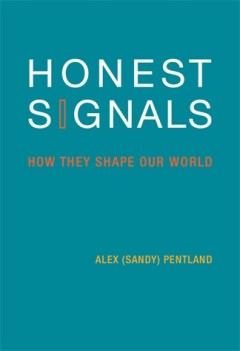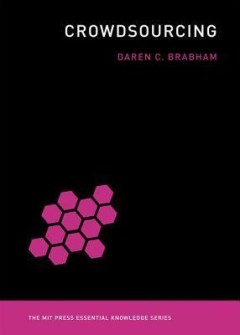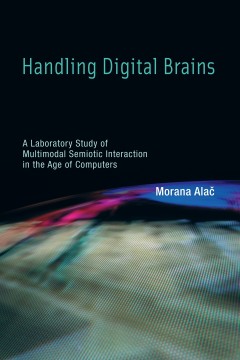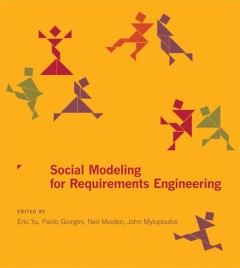Filter by

The materiality of interaction :notes on the materials of interaction design
A new approach to interaction design that moves beyond representation and metaphor to focus on the material manifestations of interaction. Smart watches, smart cars, the Internet of things, 3D printing: all signal a trend toward combining digital and analogue materials in design. Interaction with these new hybrid forms is increasingly mediated through physical materials, and therefore interacti…
- Edition
- -
- ISBN/ISSN
- 9780262344692
- Collation
- 1 online resource (ix, 192 pages) :illustrations
- Series Title
- -
- Call Number
- -

Mood and mobility :navigating the emotional spaces of digital social networks
We are active with our mobile devices; we play games, watch films, listen to music, check social media, and tap screens and keyboards while we are on the move. In Mood and Mobility, Richard Coyne argues that not only do we communicate, process information, and entertain ourselves through devices and social media; we also receive, modify, intensify, and transmit moods. Designers, practitioners, …
- Edition
- -
- ISBN/ISSN
- 9780262330893
- Collation
- 1 online resource (x, 378 pages)
- Series Title
- -
- Call Number
- -

America Identified: Biometric Technology and Society
An examination of the public perception of biometric identification technology in the context of privacy, security & civil liberties.OCLC-licensed vendor bibliographic record.
- Edition
- -
- ISBN/ISSN
- 9780262289689
- Collation
- 1 online resource (viii, 258 pages) :illustrations
- Series Title
- -
- Call Number
- -

Honest Signals: How They Shape Our World
"A Bradford book."How understanding the signaling within social networks can change the way we make decisions, work with others, and manage organizations.How can you know when someone is bluffing? Paying attention? Genuinely interested? The answer, writes Alex Pentland in Honest Signals, is that subtle patterns in how we interact with other people reveal our attitudes toward them. These unconsc…
- Edition
- -
- ISBN/ISSN
- 9780262281393
- Collation
- 1 online resource (xvii, 184 pages)
- Series Title
- -
- Call Number
- -

Crowdsourcing
Ever since the term "crowdsourcing" was coined in 2006 by Wired writer Jeff Howe, group activities ranging from the creation of the Oxford English Dictionary to the choosing of new colors for M & Ms have been labeled with this most buzz-generating of media buzzwords. In this accessible but authoritative account, grounded in the empirical literature, Daren Brabham explains what crowdsourcing is,…
- Edition
- -
- ISBN/ISSN
- 026231424X
- Collation
- 1 online resource.
- Series Title
- -
- Call Number
- -

Dynamics in action: Intentional behavior as a complex system
"A Bradford book."OCLC-licensed vendor bibliographic record.
- Edition
- -
- ISBN/ISSN
- 0585176248
- Collation
- 1 online resource (x, 288 pages) :illustrations
- Series Title
- -
- Call Number
- -

Embodied Conversational Agents
OCLC-licensed vendor bibliographic record.
- Edition
- -
- ISBN/ISSN
- 9780262270038
- Collation
- 1 online resource (430 pages) :illustrations
- Series Title
- -
- Call Number
- -

Fred Forest's utopia :media art and activism
The innovative French media artist and prankster-provocateur Fred Forest first gained notoriety in 1972 when he inserted a small blank space in Le Monde, called it 150 cm 2 of Newspaper (150 cm 2 de papier journal), and invited readers to fill in the space with their own work and mail their efforts to him. In 1977, he satirized speculation in both the art and real estate markets by offering the…
- Edition
- -
- ISBN/ISSN
- 9780262339926
- Collation
- 1 online resource (xii, 245 pages).
- Series Title
- -
- Call Number
- -

Handling digital brains :a laboratory study of multimodal semiotic interactio…
This title is an analysis of how fMRI researchers actively involve their bodies - with hand movements in particular - in laboratory practice.OCLC-licensed vendor bibliographic record.
- Edition
- -
- ISBN/ISSN
- 9780262295475
- Collation
- 1 online resource (xii, 199 pages) :illustrations (some color).
- Series Title
- -
- Call Number
- -

Social modeling for requirements engineering
Much of the difficulty in creating information technology systems that truly meet people's needs lies in the problem of pinning down system requirements. This book offers a new approach to the requirements challenge, based on modeling and analyzing the relationships among stakeholders. Although the importance of the system-environment relationship has long been recognized in the requirements en…
- Edition
- -
- ISBN/ISSN
- -
- Collation
- 1 online resource (vi, 736 pages) :
- Series Title
- -
- Call Number
- -
 Computer Science, Information & General Works
Computer Science, Information & General Works  Philosophy & Psychology
Philosophy & Psychology  Religion
Religion  Social Sciences
Social Sciences  Language
Language  Pure Science
Pure Science  Applied Sciences
Applied Sciences  Art & Recreation
Art & Recreation  Literature
Literature  History & Geography
History & Geography